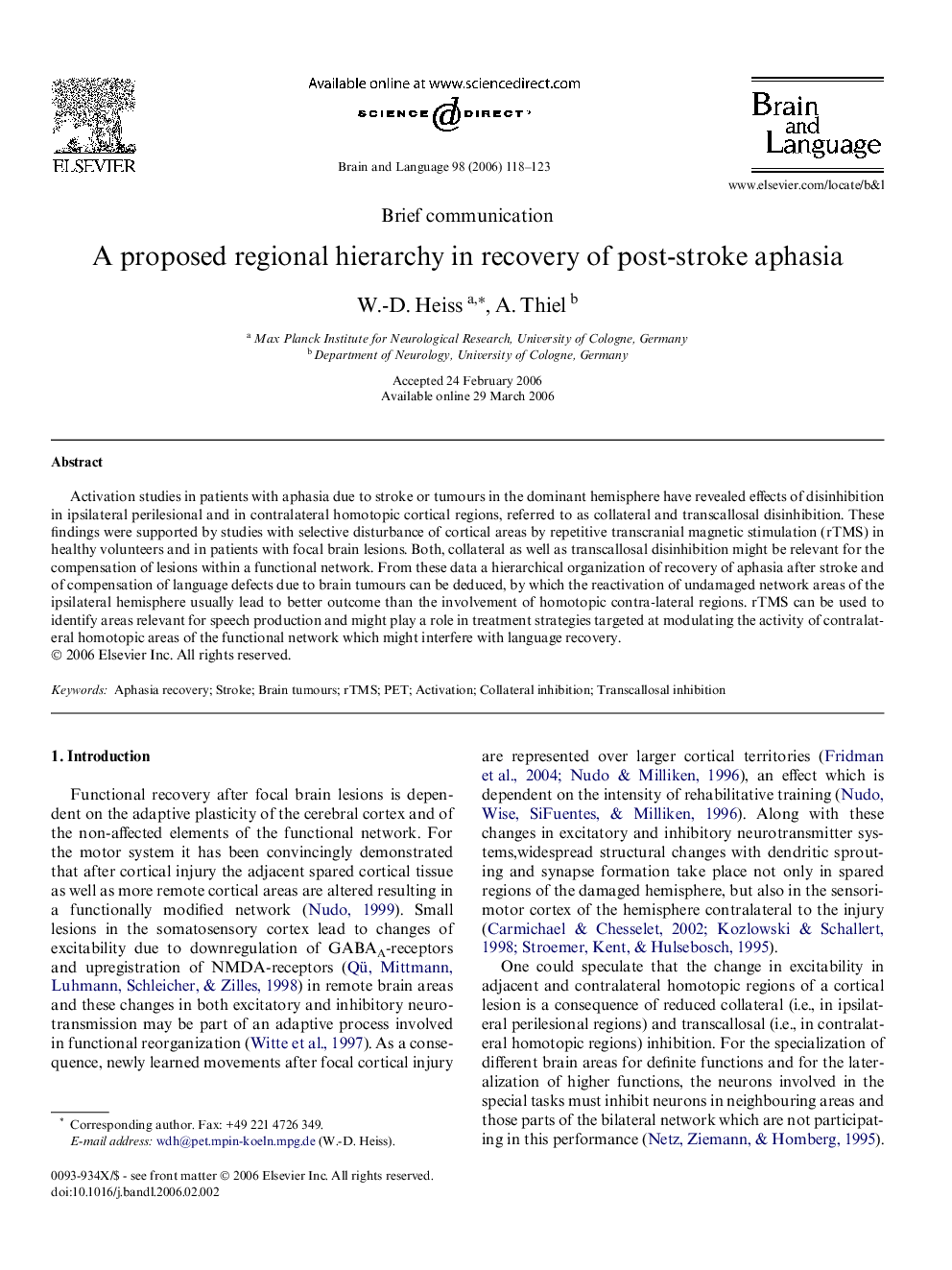| Article ID | Journal | Published Year | Pages | File Type |
|---|---|---|---|---|
| 925900 | Brain and Language | 2006 | 6 Pages |
Activation studies in patients with aphasia due to stroke or tumours in the dominant hemisphere have revealed effects of disinhibition in ipsilateral perilesional and in contralateral homotopic cortical regions, referred to as collateral and transcallosal disinhibition. These findings were supported by studies with selective disturbance of cortical areas by repetitive transcranial magnetic stimulation (rTMS) in healthy volunteers and in patients with focal brain lesions. Both, collateral as well as transcallosal disinhibition might be relevant for the compensation of lesions within a functional network. From these data a hierarchical organization of recovery of aphasia after stroke and of compensation of language defects due to brain tumours can be deduced, by which the reactivation of undamaged network areas of the ipsilateral hemisphere usually lead to better outcome than the involvement of homotopic contra-lateral regions. rTMS can be used to identify areas relevant for speech production and might play a role in treatment strategies targeted at modulating the activity of contralateral homotopic areas of the functional network which might interfere with language recovery.
